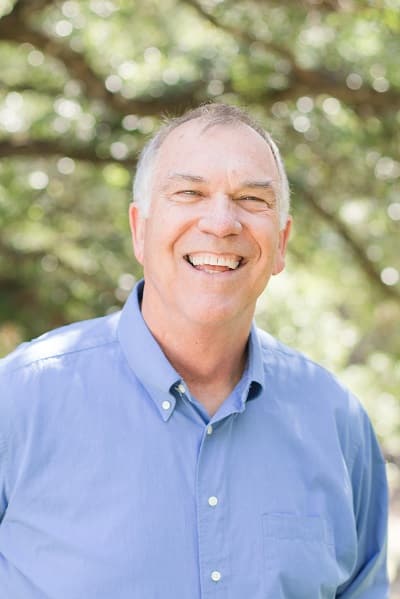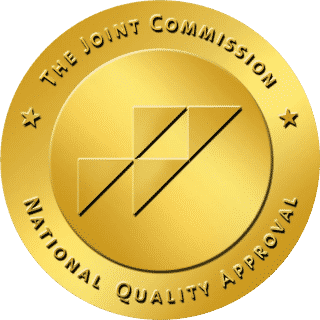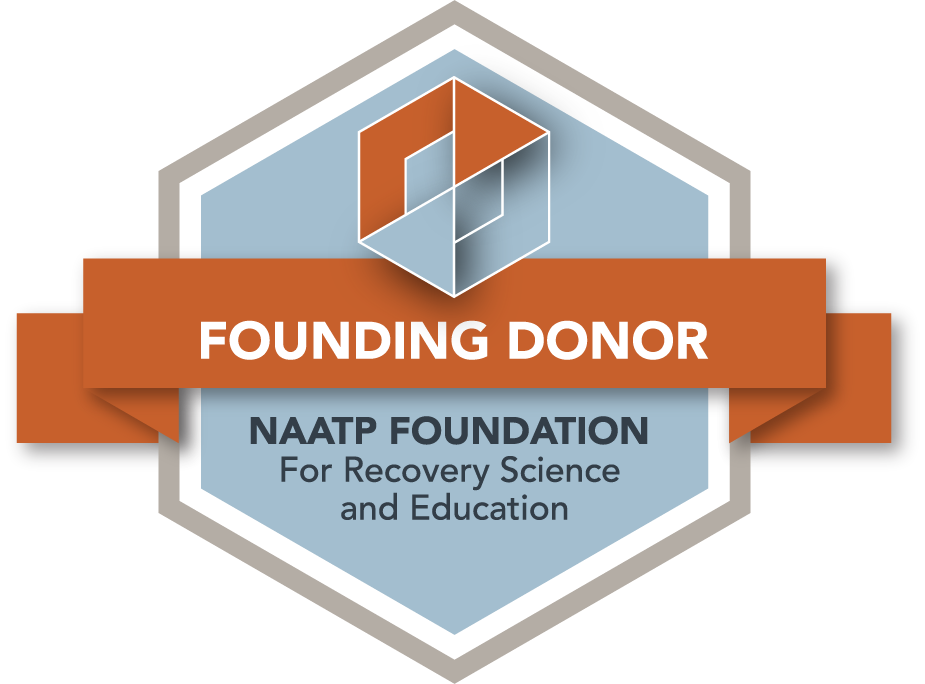
Art VanDivier, Executive Director
Art VanDivier, La Hacienda’s Executive Director since 2002, believes we should treat with dignity men and women suffering from substance use disorders.
“I believe in accountability, but it needs to be draped in a whole lot of love and compassion, understanding and forgiveness. Those pieces work to rebuild people.”
That’s how he served clients as a counselor and that’s how he views his work with staff as an administrator.
“I enjoy the relationships I have with the leaders and the employees here. I no longer work with patients but we’re all a part of something bigger than just us.”
Started with High School Group
Art was born and reared in California. When he was nine, his native Coloradan father—afraid his children were getting too Californian– moved the family from Los Gatos to the Coyote ranch. Art grew up there, learning to milk cows and break horses.
Art earned his bachelor’s degree in psychology and served as a high school guidance counselor. His involvement in treating drug and alcohol abuse started there.
“In 1977, they just kicked problem students out of school.” There was no alternative response to drug and alcohol issues. “They ended up living on the beach and working at fast food places.”
Art took over (from its teacher-founder) a group for students with drug and alcohol problems.
“Some of those kids were very bright. Most came from dysfunctional families.” He found he wanted to learn more about the family dynamics of addiction.
After receiving his bachelor’s degree, he enrolled in graduate school at St. Mary’s University in San Antonio, Texas because it emphasized both “system and family of origin theories.”
The Lost Application
Art says he found La Hacienda “by accident.” He was working as a carpenter’s helper in Kerrville while attending St. Mary’s. A month into the job, one of his co-workers told him, “There’s a place in Hunt, and those people remind me of you. You ought to go out there and apply for a job.”
“I came out, walked around the campus, and talked with several people. I felt at home.”
He completed an application and left. He heard nothing.
“Three weeks later, after some more bad carpentry, I came back out. When I walked into the receptionist’s office, she said, ‘You! We lost your application. We want to talk to you!’”
He was hired on the spot to do psychological testing and biofeedback stress management while he finished graduate school. He found he enjoyed the work and learning “this particular business.”
Started Family Program
After finishing graduate work at St. Mary’s, Art asked if he could start a family program at La Hacienda. “The Executive Director said, ‘Sure, you can do it on weekends on your own time.’“
He became a primary therapist with a caseload of eight patients on weekdays, then led family therapy on weekends.
“What really fascinated me was that when the patients come in it’s rough. They’re detoxing and can be difficult. But when this program begins to kick in, they change and often become not just the person they were before, but someone even better.”
12-Step Makes the Difference
At La Hacienda, Art came to understand the importance of the 12-step program. While not in recovery himself, he spent a year going to open meetings.
“The psychology is good here. The therapy is good here. But a critical component that brings on a unique level of change is the 12-step program. I was absolutely blown away by it.”
“I knew I wanted to be a part of this.”
The In-Between Time
With graduate degree and experience in hand, Art answered the call in 1986 to take on leadership roles elsewhere, serving as CEO for several psychiatric hospitals in Texas.
“Patients did not seem to achieve the same level of recovery I had witnessed from addiction or alcoholism as La Hacienda provides.”
“All I wanted to do was to come back.”
That opportunity came in 2002 when the current owners invited him to return. He’s been leading La Hacienda ever since.
A Story Worth Hearing
Art’s compassion for those who battle alcoholism and addiction is clear.
“These men and women have survived hard times and risen back up, they are the best friends, the most loving and forgiving people,” he says, citing personal experience.
“People are sometimes ashamed to say that they are recovering addicts or alcoholics. But for me, if you want to sit down and talk, that’s a great start. I immediately know that those people have been to hell and back, and they have a story that I want to hear; something to offer that’s worth listening to.”
Involvement with NAATP
Art’s leadership also extends nationally. He has been a board member for the National Association of Addiction Treatment Providers (NAATP) since 2004, and its Board Chairman for 2017-2019.
“The national association has become a powerful force in the industry, and I love being a part of that.” He cites NAATP-supported legislation “that provides opportunities for alcoholics and addicts to find recovery and a strong position against fraud in the industry.”
“It’s a privilege to get to meet and work with the leaders around the country. There are a lot of good treatment centers in the United States.
But he adds, “there are still a lot of people not getting help.”
Motorcycles and Photography
In his free time, Art loves to ride motorcycles and is an avid photographer.
As one might expect of a youthful Californian growing up in the 1960s and ’70s, he loved surfing and scuba diving, but those hobbies have waned in the rocky hills of Central Texas.
He has twin daughters graduating from college in 2021, three adult sons who work in the I.T. industry and four grandchildren.


